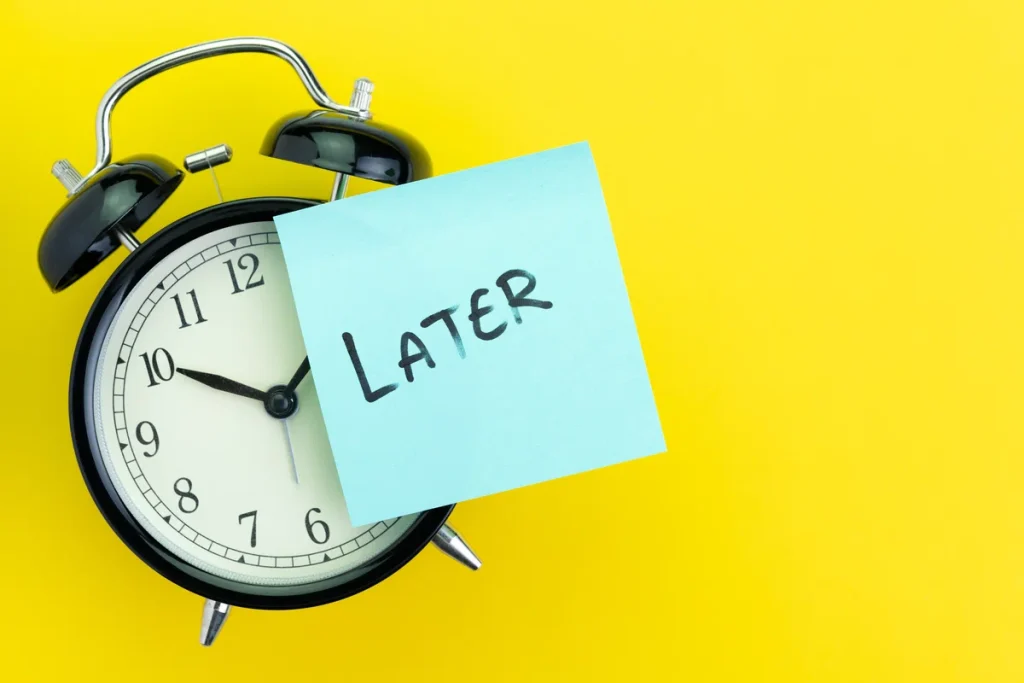Zeigarnik effect: how to improve productivity

An unfinished action is more memorable than a finished action. Do you remember a situation when an argument has already ended and you keep replaying it in your head? How you spent days and nights preparing for an exam and then forgot everything you studied the next day? These seemingly unrelated events are described by one psychological law. Humans are organized in such a way that they feel the urge to finish unfinished tasks. Unfinished tasks cause an inner tension that urges us to go back and finish them.
Resentments that we have not avenged remain in our memories for a long time. Unrealized desires, unspoken words, and imperfect deeds are remembered better than incredible trips and the most expensive purchases. People who are at least a little familiar with psychology will call these situations unclosed gestalts.
The psychological phenomenon describing the human desire to bring a task to its logical conclusion is called the Zeigarnik effect. It is actively used in Gestalt psychology to this day. It helped to describe the nature of anxiety and guilt and some principles of productivity. We will talk about it in this article.
The history of the Zeigarnik effect

In the 1920s, Kurt Lewin was considered one of the most famous psychologists in the world. He taught at the University of Berlin and in 1924 Bluma Vulfovna Zeigarnik, the future founder of Soviet pathopsychology, came to him to study psychology. Kurt Lewin was a talented man who tended to hold seminars not in stuffy classrooms, but in cafes near the university. Students would sit down, order their food, and engage in heated arguments and discussions.
At one of these seminars, Bluma Zeigarnik noticed that the waiter taking orders was not writing anything down. She discovered that the waiter remembered the orders by heart. Kurt Lewin found this observation interesting. At the time, he was developing his own field theory, according to which human activity is stimulated by external factors and needs to be discharged. The waiters remembered new orders perfectly well, but could not remember what the guests who had already paid had ordered. Subsequently, Bluma Zeigarnik wrote a thesis on this topic, and the described phenomenon of incomplete action began to bear the name of its discoverer.
What is the effect

To test the hypothesis about the influence of completeness on Blum’s memorization, Zeigarnik asked subjects to perform several tasks in a limited amount of time. The experiment participants were interrupted randomly and then asked to recall which tasks they had completed. At the end of the experiment, it was noted that unfinished tasks were better remembered and participants wanted to finish them. Bluesma Zeigarnik explained this by the fact that an unfinished action leaves a certain tension that allows you to remember it longer. Any action creates a similar charge and the psyche needs to free itself from it.
Zeigarnik’s research was complemented by psychologist Maria Ovsyankina. She discovered that an undone task is perceived as a “quasi-need” and does not require any reminders. Intrusive thoughts constantly remind us of the task. We want to complete the interrupted action in any way we can and arrive at a psychological release. Without bringing the started action to the end, a person cannot relax and calm down. At the same time, the strength of the effect depends on various factors. For example, the more emotionally engaging an action is, the more nervous its incompleteness is.
Procrastination

If you learn how to apply the Zeigarnik effect correctly, you can defeat procrastination with its help. With it, it is easier to focus on priorities, stay efficient and maintain mental health. If you tend to put things off, you need to force yourself to start a task, and then the tension created in the psyche will push you to complete it.
This principle was actively used by the writer Ernest Hemingway. He believed that you should start working and then stop and distract yourself with something else. “When work is good, stop writing,” – this principle was followed by Ernest Hemingway. Thanks to this, each time writing enthusiastically returned to any case with new ideas.
Use the following pattern to combat procrastination:
- begin the task at hand;
- when you feel yourself getting carried away, stop;
- return to the task the next day.
It can be difficult to approach a task because of its complexity and poor structure. In this case, you should break down large tasks into smaller ones and start doing the simple ones first, and then proceed to the complex ones. For example, you have to make a presentation. This is a big task, and it can be broken down into stages: write the text, select images, and assemble the presentation.
The Zeigarnik effect is useful when working with to-do lists. Start with easy tasks and gradually move on to difficult ones. Keep in mind that the effect will not work on simple everyday tasks that do not require a lot of time. It is suitable for situations when you are working on complex projects and goals, and the tasks are interconnected.
Training

Understanding how the effect works helps make learning more productive. If you interrupt a task and come back later, the information learned while working is more likely to be memorized. Teachers advise not to rote memorize, but to return to the material several times and take breaks to switch to other things. Small breaks will help to maintain the effect of incompleteness, and in your thoughts you will constantly return to the studied topic.
It is important to avoid the label “passed material” when studying. When learning a new topic, you need to explain to your brain that the issue has not been fully explored and you will return to it. By doing this, you will be able to reduce the side effect of the effect and not forget all the information.
Presenters of master classes and webinars actively use such methods. At the beginning of the meeting, they ask participants to complete a task, but the correct answer is only given at the end. Participants constantly think about the task while waiting for the answer, listen attentively to the speaker and easily get involved in other activities.
Personal productivity

The Zeigarnik Effect has a direct impact on your productivity. The more unfinished tasks you keep in your head, the harder it is to start others. The situation continues to get worse with each new task or project. The brain is forced to interrupt the task at hand and switch to a new one. The result is cognitive overload, your productivity drops and you can no longer complete the task with quality. Even a simple five-minute task that you decide to put off can make it hard to focus on your priorities.
For our brains, “completing a task” is about fixing it, labeling its components, and setting deadlines. Therefore, in order for the Zeigarnik effect to have a positive effect on your productivity, you should make to-do lists for the day with deadlines for each task. First, by writing things down, you can be sure that you won’t forget anything. And secondly, this way you will let your brain know that the tasks are already sorted out and everything is under control.
Keep in mind that not all tasks depend on you, so don’t take on extra responsibility. A client may postpone the launch of a project, or a manager may go on vacation. Don’t be afraid to delegate tasks to others, so you can save your time and get on with the really important things.
Unfinished business negatively affects sleep. Thoughts about future work deplete internal resources, so the right approach to the Zeigarnik effect will help to maintain health. At the end of the working day, summarize what you managed to do, make a plan for tomorrow. Try not to leave anything in a state of uncertainty. Put in order not only in your head, but also in your workplace. This will help you get rid of anxious thoughts.
Why the effect didn’t work for you
In order for the Incomplete Action Syndrome to help you increase your productivity, you need to take into account one of its peculiarities – it works well when it is used in one flow. If you try to fit your work, studies, and hobbies into a day using task interruptions, you will sooner face procrastination and burnout than get any benefits from the Zeigarnik effect. Properly optimize your schedule and tasks so you don’t overload your brain with too many things to do. To make it easier to get started on tasks, use warm-up techniques – before you start, sound out your work plan, write a couple of sentences, edit previous slides.
Conclusion
Because of the Zeigarnik effect, even the most vivid events in our lives fade over time. Instead, we remember everything we haven’t had time to do. Many people find this depressing, but in this way the psyche lets us know that there are still unused resources. Unfinished tasks help us move forward and reach new goals. If unfinished tasks begin to interfere with your productivity, it is only a signal that it is time to finish them.



